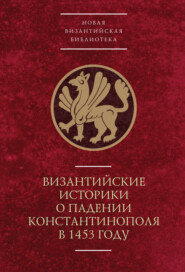По всем вопросам обращайтесь на: info@litportal.ru
(©) 2003-2024.
✖
Stories by English Authors: England
Настройки чтения
Размер шрифта
Высота строк
Поля
She led him to a seat beside her, and waited to speak again until her maid had brought in the tea.
"Have you read my letter in the same friendly spirit in which I wrote it? "she asked, when they were alone again.
"I have read your letter gratefully, but – "
"But you don't know yet what I have to say. Let us understand each other before we make any objections on either side. Will you tell me what your present position is – at its worst? I can, and will, speak plainly when my turn comes, if you will honour me with your confidence. Not if it distresses you," she added, observing him attentively. He was ashamed of his hesitation, and he made amends for it.
"Do you thoroughly understand me?" he asked, when the whole truth had been laid before her without reserve.
She summed up the result in her own words: "If your overdue ship returns safely within a month from this time, you can borrow the money you want without difficulty. If the ship is lost, you have no alternative, when the end of the month comes, but to accept a loan from me or to suspend payment. Is that the hard truth?"
"It is."
"And the sum you require is – twenty thousand pounds?"
"Yes."
"I have twenty times as much money as that, Mr. Lismore, at my sole disposal – on one condition."
"The condition alluded to in your letter?"
"Yes."
"Does the fulfilment of the condition depend in some way on any decision of mine?"
"It depends entirely on you."
That answer closed his lips.
With a composed manner and a steady hand, she poured herself out a cup of tea. "I conceal it from you," she said, "but I want confidence Here" (she pointed to the cup) "is the friend of women, rich or poor, when they are in trouble. What I have now to say obliges me to speak in praise of myself. I don't like it; let me get it over as soon as I can. My husband was very fond of me; he had the most absolute confidence in my discretion, and in my sense of duty to him and to myself. His last words before he died were words that thanked me for making the happiness of his life. As soon as I had in some degree recovered after the affliction that had fallen on me, his lawyer and executor produced a copy of his will, and said there were two clauses in it which my husband had expressed a wish that I should read. It is needless to say that I obeyed."
She still controlled her agitation – but she was now unable to conceal it. Ernest made an attempt to spare her.
"Am I concerned in this?" he asked.
"Yes. Before I tell you why, I want to know what you would do – in a certain case which I am unwilling even to suppose. I have heard of men, unable to pay the demands made on them, who began business again, and succeeded, and in course of time paid their creditors."
"And you want to know if there is any likelihood of my following their example?" he said. "Have you also heard of men who have made that second effort – who have failed again – and who have doubled the debts they owed to their brethren in business who trusted them? I knew one of those men myself. He committed suicide."
She laid her hand for a moment on his.
"I understand you," she said. "If ruin comes – "
"If ruin comes," he interposed, "a man without money and without credit can make but one last atonement. Don't speak of it now."
She looked at him with horror.
"I didn't mean that!" she said.
"Shall we go back to what you read in the will?" he suggested.
"Yes – if you will give me a minute to compose myself."
In less than the minute she had asked for, Mrs. Callender was calm enough to go on.
"I now possess what is called a life-interest in my husband's fortune," she said. "The money is to be divided, at my death, among charitable institutions; excepting a certain event – "
"Which is provided for in the will?" Ernest added, helping her to go on.
"Yes. I am to be absolute mistress of the whole of the four hundred thousand pounds – " her voice dropped, and her eyes looked away from him as she spoke the next words – "on this one condition, that I marry again."
He looked at her in amazement.
"Surely I have mistaken you," he said. "You mean on this one condition, that you do not marry again?"
"No, Mr. Lismore; I mean exactly what I have said. You now know that the recovery of your credit and your peace of mind rests entirely with yourself."
After a moment of reflection he took her hand and raised it respectfully to his lips. "You are a noble woman!" he said.
She made no reply. With drooping head and downcast eyes she waited for his decision. He accepted his responsibility.
"I must not, and dare not, think of the hardship of my own position," he said; "I owe it to you to speak without reference to the future that may be in store for me. No man can be worthy of the sacrifice which your generous forgetfulness of yourself is willing to make. I respect you; I admire you; I thank you with my whole heart. Leave me to my fate, Mrs. Callender – and let me go."
He rose. She stopped him by a gesture.
"A young woman," she answered, "would shrink from saying – what I, as an old woman, mean to say now. I refuse to leave you to your fate. I ask you to prove that you respect me, admire me, and thank me with your whole heart. Take one day to think – and let me hear the result. You promise me this?"
He promised. "Now go," she said.
Next morning Ernest received a letter from Mrs. Callender. She wrote to him as follows:
"There are some considerations which I ought to have mentioned yesterday evening, before you left my house.
"I ought to have reminded you – if you consent to reconsider your decision – that the circumstances do not require you to pledge yourself to me absolutely.
"At my age, I can with perfect propriety assure you that I regard our marriage simply and solely as a formality which we must fulfill, if I am to carry out my intention of standing between you and ruin.
"Therefore – if the missing ship appears in time, the only reason for the marriage is at an end. We shall be as good friends as ever; without the encumbrance of a formal tie to bind us.
"In the other event, I should ask you to submit to certain restrictions, which, remembering my position, you will understand and excuse.
"We are to live together, it is unnecessary to say, as mother and son. The marriage ceremony is to be strictly private, and you are so to arrange our affairs that, immediately afterward, we leave England for any foreign place which you prefer. Some of my friends, and (perhaps) some of your friends, will certainly misinterpret our motives, if we stay in our own country, in a manner which would be unendurable to a woman like me.
"As to our future lives, I have the most perfect confidence in you, and I should leave you in the same position of independence which you occupy now. When you wish for my company you will always be welcome. At other times you are your own master. I live on my side of the house, and you live on yours; and I am to be allowed my hours of solitude every day in the pursuit of musical occupations, which have been happily associated with all my past life, and which I trust confidently to your indulgence.
"A last word, to remind you of what you may be too kind to think of yourself.
"At my age, you cannot, in the course of nature, be troubled by the society of a grateful old woman for many years. You are young enough to look forward to another marriage, which shall be something more than a mere form. Even if you meet with the happy woman in my lifetime, honestly tell me of it, and I promise to tell her that she has only to wait.

















